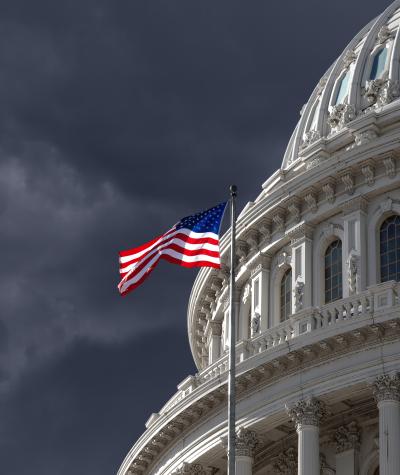Yesterday, the Senate Ethics Committee (“Ethics Committee”) released its annual report for 2022, revealing that it dismissed nearly all its ethics investigations and only issued one private letter of admonition as a penalty. In response, CLC sent a letter to Chairman Chris Coons (D-DE) and Vice Chair James Lankford (R-OK), calling on them to end this ongoing trend of inaction and to lead the Ethics Committee to increased ethics enforcement and transparency in the new Congress.
In 2022, the Ethics Committee received 92 allegations of ethics violations. Only 22 matters were investigated with a preliminary inquiry, of which 15 (68%) were dismissed. This new dismissal rate is higher than the 52% average from 2009 to 2020 before Senator Coons became Chairman in 2021.
When Chairman Coons joined the Ethics Committee in 2014, he stated that it was “an honor and a responsibility to help protect and defend the integrity of the Senate.” Despite this statement and his leadership as Chair, the Ethics Committee continues to conceal details about ethics complaints and those who violate the rules. Since 2021, the Ethics Committee has reported receiving 190 allegations of misconduct and investigated only 54 cases with preliminary inquiries. Of the matters investigated with preliminary inquiries, 34 were dismissed (63%). Over two years, the only reported disciplinary action is one private letter to the violator.
Also, during the past two years, the Ethics Committee has not released any details about the nature of its investigations into the alleged violations received. This provides no transparency for the public.
The ineffectiveness of the Ethics Committee extends beyond the last few years. In 2014, CLC identified the Senate Ethics Committee’s approach to ethics enforcement as “insular and opaque.” In February 2021, CLC conducted a comparative study to evaluate 10 years of ethics enforcement in the U.S. House and Senate.
We found that the Ethics Committee is significantly less transparent than the House and does not hold officials accountable. Only 3% of Senate complaint investigations resulted in a finding of a violation, compared to the House’s Office of Congressional Ethics’ (“OCE”) 41%. Additionally, the Senate Ethics Committee produced a public report only 5% of the time, while OCE produced a public report for 43% of its investigations.
In 2021, Roll Call published an article showing that the Ethics Committee had not sanctioned a single member in 14 years. The Ethics Committee has still not sanctioned a member two years later.
The Ethics Committee’s annual reports from 2009 to 2022 establish conclusively that the public cannot rely on the Ethics Committee to actively enforce ethics rules. To hold lawmakers accountable, the Senate clearly needs and should create an independent office for ethics investigations. Such an office could be modeled after the OCE, which has operated independently from the House Ethics Committee since its creation in 2008.
The American public deserves effective ethics enforcement in both chambers of Congress. Without it, senators will continue to favor the priorities of donors and special interests, as well as their own personal financial interests, over the needs of their constituents. The only way to reduce corruption and hold senators accountable is for the Senate to immediately create an independent ethics committee.


